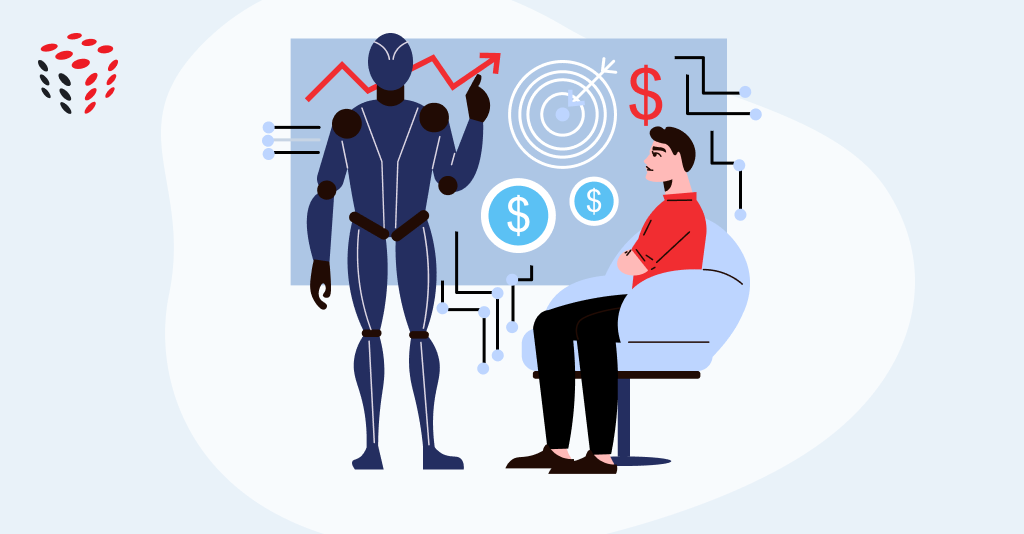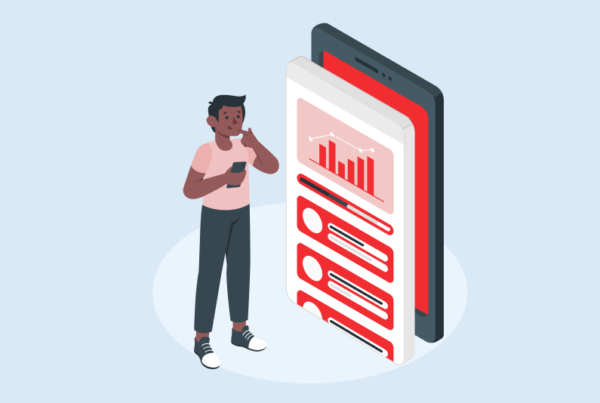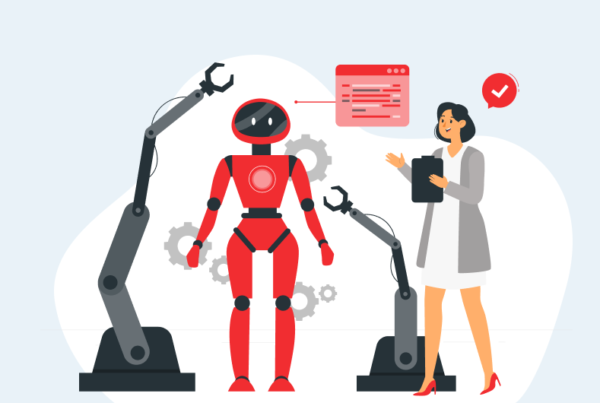
Resources > Blog > The Future of Work: How AI and Machine Learning are Revolutionising HR Tech
The Future of Work: How AI and Machine Learning are Revolutionising HR Tech
Published on Oct 14, 2023

This blog will explore how AI is reshaping HR technology today and cast a vision for its responsible adoption tomorrow. We’ll examine use cases across core HR processes, benefits, and implementation best practices. A case study on SAP SuccessFactors’ AI-powered solutions demonstrates the tremendous impact in action.
The intelligent automation era is here. Let’s examine how HR leaders can harness it to revolutionise our work.
Current AI Capabilities in HR Tech
AI is already transforming significant areas of HR technology and processes. Some current use cases include:
- Recruiting and Candidate Matching: AI automatically analyses job descriptions and candidate profiles to surface best-fit options, reducing manual screening.
- Job/Skills Taxonomy and Modeling: Intelligent algorithms classify jobs and map associated skills to inform personalised development plans.
- Predictive Analytics: By crunching massive datasets, AI models can forecast retention risk, identify high performers, and prescribe coaching.
- Chatbots for HR Service Delivery: Bots like SAP SuccessFactors Conversational AI handle common employee requests via natural conversation.
- Bias Mitigation in Hiring Analytics: AI can spotlight potential demographic biases in hiring data and improve fairness in recruitment.
These applications demonstrate AI’s expansive potential, from automating tactical tasks to unlocking strategic insights from HR data. Adoption is still in the early stages, but momentum is accelerating.
AI-Driven Transformation of Key HR Processes
Looking ahead, AI will revolutionise key HR processes in new ways:
- Automated Resume Screening and Candidate Matching: AI systems can instantly surface best-fit candidates and reduce time-intensive manual reviews by analysing resumes.
- Hyper-Personalized Job Recommendations: Intelligent algorithms will study employees’ skills, interests, and goals to provide tailored open role recommendations for advancement.
- Predictive Insights for Growth: Granular performance data will feed AI models that identify strengths to leverage and skill gaps to address for each employee.
Conversational AI Assistants: Bots will handle common HR inquiries from employees via two-way natural language conversations, reducing HR workload. - Fairness Safeguards in Talent Analytics: Algorithms will proactively detect and mitigate any demographic bias in HR datasets to ensure equitable, ethical AI.
This provides a glimpse into how AI could redefine HR operations. Tactical minutiae are eliminated, while human talent focuses on high-value analysis, coaching and strategy
Benefits of an AI-Powered HR Function
Implementing AI thoughtfully promises to revolutionise HR capabilities and elevate strategic impact.
- Faster Processes Through Automation: AI systems enable HR to focus on value-added initiatives by taking over high-volume repetitive tasks.
- Removing Human Bias from Decisions: AI applies consistent logic to minimise subjective human biases around recruiting, performance management and other critical decisions.
- Sophisticated Analytics for Planning: Advanced AI uncovers deep insights from HR data to inform strategic workforce planning and talent investments.
- Enhanced Employee Experience: Chatbots and intelligent assistants create a seamless, instant-access HR experience for employees.
- Increased HR Capacity Without Adding Headcount: As AI handles more workload, HR can take on elevated strategic direction without inflating team size.
The result is an HR function that drives productivity, employee satisfaction, and business results to new heights.
Case Study: AI Innovation at SAP SuccessFactors
SAP SuccessFactors provides a robust showcase of how AI transforms HR processes and elevates strategic impact. Key innovations include:
- Intelligent Candidate Matching: Analyses job and candidate profiles to automatically surface best-fit options from talent pools. Improves efficiency by over 70% and quality of hire by 5%.
- Skills Graph: Advanced AI modelling of jobs, skills and competencies enables intelligent development recommendations for each employee.
- Customisable Chatbots: Bots like SAP SuccessFactors Conversational AI handle over 1.2 million HR inquiries annually, resolving requests 3x faster than email.
- Predictive Workforce Analytics: Models analysing over 6 billion data points forecast retention risk, prescribe development opportunities, and provide other strategic insights.
- Commitment-Based Forecasting: Leveraging AI to predict employee flight risk has reduced attrition by 20-60% for multiple SAP customers.
Looking ahead, SAP SuccessFactors aims to continue leading HR tech innovation by infusing AI throughout its HCM suite. The vision is AI-powered assistants that help HR staff work smarter and focus on the human aspects of their roles. By combining the best of human expertise and AI capabilities, SuccessFactors is pioneering the future of HR.
The Future with AI-as-a-Colleague
The next evolution in HR technology will be AI-powered assistants working as colleagues to HR professionals. Just as AI can now beat humans at chess, future HR functions will feature humans and AI combining their complementary strengths.
Some ways AI colleagues will collaborate with humans:
- Team-based Assistants: Bots will handle high-volume administrative tasks, enabling humans to focus on strategic work.
- Augmenting Skills: AI’s instant data analysis will inform human judgment, creativity and empathy applied to coaching and culture.
- Hybrid Decision-Making: Humans will provide oversight and steer AI systems toward equitable, ethical outcomes.
This future hybrid model allows HR to benefit from AI’s efficiency and insights while retaining the nuanced expertise of human professionals. But thoughtfully governing AI and upholding ethics will remain imperative.
The most effective HR function will feature the best humans and AI, maximising their symbiotic potential as colleagues. Technology leaders have a responsibility to pioneer this future today.
Conclusion
The rise of AI promises to revolutionise the future of work across all industries. As this technology proliferates, HR leaders are responsible for pursuing ethical, responsible AI adoption.
The preceding sections summarised how AI automates tasks, generates insights, and enhances critical talent decisions. Real-world examples prove AI can make processes more efficient, remove bias, and elevate analytics.
However, we must shape AI thoughtfully to amplify the best of human abilities. As AI assumes more responsibilities, HR should focus on the creative and interpersonal aspects only humans can provide.
For organisations poised to embrace this technology, the guidance is clear:
- Outline goals and guardrails to develop AI responsibly
- Involve stakeholders at all levels to shape adoption.
- Continuously evaluate AI systems for unwanted bias.
- Be ready to course-correct as AI evolves.
HR leaders can harness AI’s potential while mitigating risks by following this advice. The future of work powered by ethical, trusted AI is within reach by starting today’s journey. Will you lead your organisation forward?







Share with your network
Get updates in your inbox